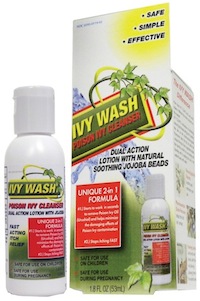DEAR DR. GOTT: I would like information on aspartame. Diet sodas often are sweetened with this. A friend said the product causes cancer. True or false?
DEAR READER: Aspartame, marketed under several different names, was approved in 1981 for inclusion in dry goods and in 1983 for carbonated beverages as an artificial, low-calorie sweetener that is approximately 200 times sweeter than table sugar. To set the record straight, the product was originally approved in 1974 but was placed on hold by the FDA until 1981. It has now been approved as safe for the general public by more than 90 nations worldwide, to include the American Food and Drug Administration (FDA). It is used essentially by the public to reduce a person’s calorie intake. It is composed primarily of two amino acids known as aspartic acid and phenylalanine. While the names sound complicated, these amino acids are found in all foods that contain protein — to include dairy products, meats and grains.
The safety of the product has been the subject of many medical controversies and congressional hearings since its initial approval for use by the FDA. Sweeteners such as aspartame are regulated by the FDA and must be tested for safety before they can be approved for use. The organization has set an acceptable daily intake which translates to the maximum amount considered safe for consumption each day during a person’s lifetime. That amount (50 milligrams per kilogram of body weight) is approximately 100 times less than the smallest amount that presumably might cause health concerns based on studies performed on laboratory animals. I must interject it would be nice to know how this impacts when tested on humans, but it is likely too soon to have that answer. In any event, the amount indicated by the FDA as being safe translates to about 3,750 milligrams for an adult weighing 75 kilograms (165 pounds), an amount theoretically far more than most adults are known to consume daily. For example, if a can of diet soda contains 180 milligrams of aspartame, a person would have to drink 21 cans each day to exceed the recommended level set.
In one large study involving more than 500,000 older adults regarding the product and a link to cancer, researchers were unable to make a connection between an increased rate of lymphomas, leukemias or brain tumors in those known to consume aspartame regularly as opposed to those who do not consume food and drink containing such artificial sweeteners. Other issues to include a correlation between Alzheimer’s, Parkinson’s, lupus, multiple sclerosis, dizziness, mood changes, seizures and more have been unproven as well. There are countless reports available, some unequivocally endorsing aspartame as being safe, others totally panning the product as being anything but. Other than the possible effects of people with phenylketonuria (a condition in which the body lacks the enzyme to metabolize phenylalanine), there don’t appear to be consistent health problems with aspartame use.
I wish I could answer your question more firmly. I can only say the FDA has approved artificial sweeteners when taken according to their limits. Despite this, it is my opinion that people should check labels before eating or drinking products that contain aspartame. I must admit I prefer to err on the side of caution, rather than discovering a connection between some dreaded disease following long-term consumption. If you drink diet soda, do so in moderation. As for me, I’ll continue with water, apple cider, or 100% cranberry juice. Just call me a sour puss but I’ll pass up the sugar substitute.


